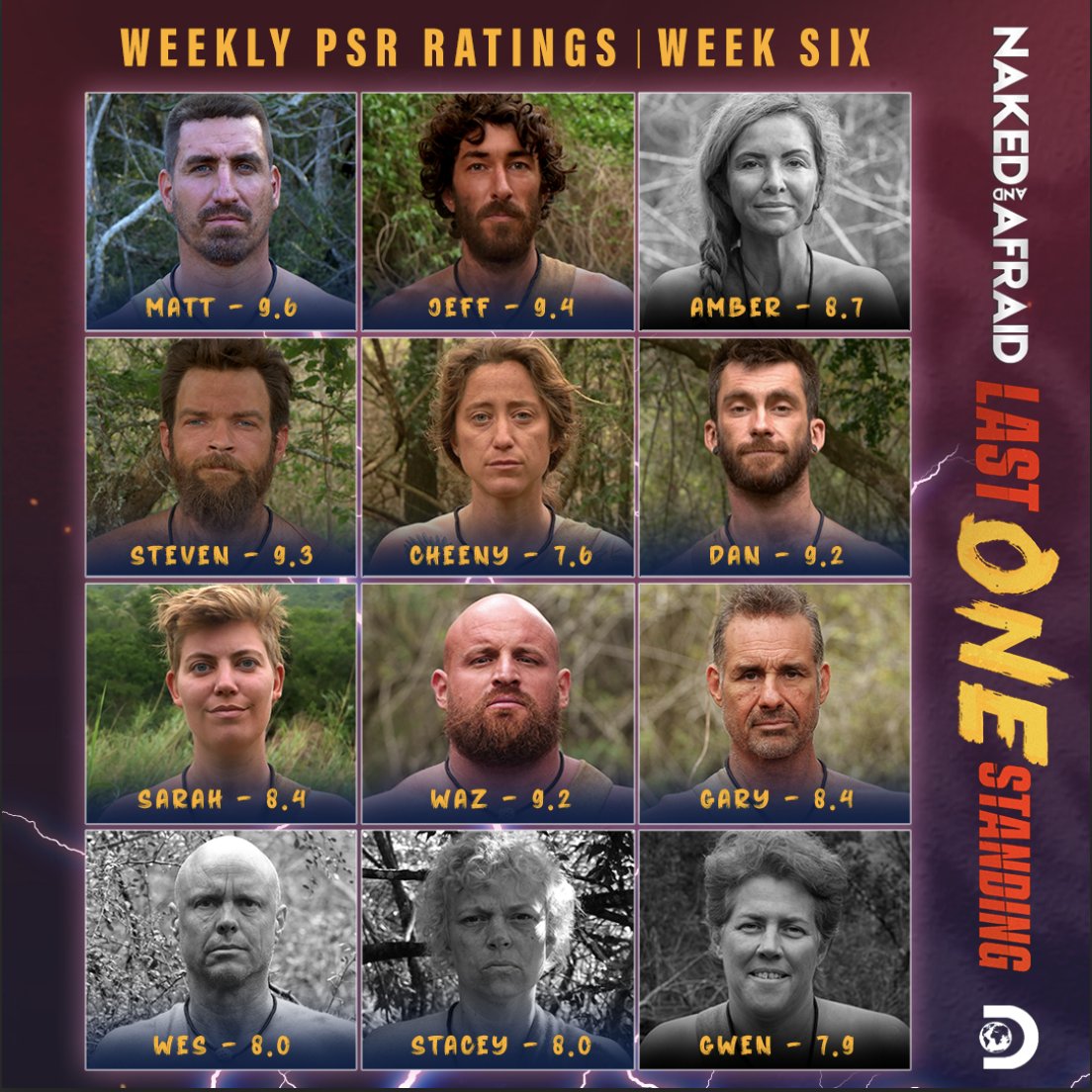The Role Of Chance - Naked And Afraid Survival
When thinking about surviving in a wild place, far from anything familiar, a person often considers what they bring, what they know, or perhaps who they are with. But there's another element, a powerful force that shapes every single moment out there, and that is pure chance. It's the unexpected twist, the sudden change in weather, the discovery of something useful, or the near miss with danger that truly colors the experience for anyone trying to make it through. So, in a way, the whole idea of facing the wild is a bit like stepping into a situation where the outcomes are never fully certain.
This concept of unpredictability, of outcomes that swing one way or another, seems to echo through the very core of what it means to put oneself in such a vulnerable position. You might prepare with all your might, gathering knowledge about plants and animals, practicing fire-starting techniques, or building shelters, yet the universe has its own plans. A sudden downpour could wash away your efforts, a small cut could become a big problem, or a rare animal might just wander into your path, for instance. It's a continuous dance with the unknown, where every choice, every step, feels like a decision made with an eye on what might happen next.
The audience, too, gets to witness this unfolding drama, almost like observing a live event where the stakes are quite high. We watch, wondering if the people on screen will find water, catch food, or simply endure another night. It's a compelling spectacle, really, because the element of fortune, or just plain bad luck, is always present, shaping the narrative in ways no one could have predicted. You know, it's almost as if the show itself is a grand experiment in how much human will can stand up against the sheer randomness of the natural world.
Table of Contents
- The Unpredictable Nature of Survival
- Weighing the Risks - A Survival Gamble
- The Community Watching - Observing "Chance from Naked and Afraid"
- Earning Your Survival - The Rewards of "Chance from Naked and Afraid"
The Unpredictable Nature of Survival
Living without the comforts of modern life, out in the wild, means accepting that anything can happen at any moment. One day, the sun might shine brightly, offering warmth and a chance to dry out gear. The next, a storm could roll in, bringing chilling rain and making every task much harder. This constant shift, this unpredictable flow of events, is a fundamental aspect of the survival experience. It's not just about what skills a person possesses; it's also about how they react to the hand they are dealt by nature. You know, sometimes, a small, seemingly insignificant event can completely alter the course of someone's time in the wild, turning a hopeful situation into a desperate one, or vice versa.
Think about the unexpected discovery of a clean water source when thirst is becoming a serious problem. Or the sudden appearance of a small animal that provides a much-needed meal. These moments, which seem to come out of nowhere, are pure instances of fortune playing a part. On the flip side, a sudden injury, like a twisted ankle on uneven ground, or losing a vital tool in a river, can bring an abrupt end to a person's attempt to last. It’s like a continuous series of mini-challenges, each with its own set of possible results, and the participants have to react as best they can. Basically, the wild environment itself is a dynamic, living system, and it doesn't care about human plans or desires, really.
The show itself, as we observe it, provides access to these raw, unedited moments of struggle and triumph. We get to see the participants facing these sudden changes, almost like watching a real-time display of human resilience against the wild's whims. It's a fascinating look at how people adapt, or sometimes fail to adapt, when their very existence hangs on a thread. This continuous stream of happenings keeps us on the edge of our seats, wondering what new challenge or unexpected help will appear next. It's very much about the immediate circumstances, and how a person tries to make the best of them, or, you know, just tries to keep going.
When Does "Chance from Naked and Afraid" Come Into Play?
The element of "chance from Naked and Afraid" comes into play from the very first instant someone steps into the wild. It begins with the location they are assigned – some places are naturally more abundant with resources, while others are incredibly harsh. Then, there's the partner they are paired with; their compatibility, or lack thereof, can be a matter of pure luck, significantly affecting their chances of lasting. You know, even the initial items they are allowed to bring, chosen from a small list, can feel like a small gamble, since they have to guess what will be most useful in an unknown setting.
As the days pass, "chance from Naked and Afraid" shows itself in countless ways. A sudden downpour might flood a shelter, forcing a hurried rebuild. A small cut from a sharp branch could become infected, demanding immediate attention and potentially ending the challenge. Or, perhaps, a rare animal might wander close, offering a chance at a much-needed source of food, when hunger has become a deep ache. These moments, whether good or bad, are often beyond anyone's control. It's like a daily draw, where the environment hands out challenges or unexpected gifts, and the participants must simply react. So, in some respects, every sunrise brings with it a fresh set of possibilities, some helpful, some not so much.
Even the search for basic needs, like water or food, is heavily influenced by "chance from Naked and Afraid." A water source might dry up unexpectedly, or the usual hunting grounds might yield nothing for days. The ability to find and secure these vital resources often relies on a mix of skill and pure fortune. It’s not just about knowing where to look, but also about being in the right place at the right time, or having the weather cooperate. A sudden rainstorm, while uncomfortable, might fill up a dry creek bed, providing a temporary solution to thirst, for instance. These small, random occurrences often make the biggest difference in whether someone can continue their attempt to survive.
Weighing the Risks - A Survival Gamble
Every decision made in a survival situation carries a certain amount of risk, a sort of gamble. Should you spend precious energy building a more elaborate shelter, hoping for better protection from the elements, or should you prioritize searching for food, knowing that hunger is a more immediate threat? These choices are not easy, and the potential outcomes are often unknown. It's like placing a wager on what the future holds, based on limited information and a whole lot of hope. The participants are constantly evaluating what they have, what they need, and what might happen if they choose one path over another. Basically, they're always trying to figure out the best way to use their limited resources, you know, to get the most out of them.
The consequences of these decisions can be quite significant. A choice to venture further into the wilderness for food might lead to finding an abundant supply, or it might lead to getting lost or injured. Staying put might conserve energy, but it could also mean missing out on crucial resources. This continuous assessment of risk versus reward is a core part of the survival experience. It requires a keen sense of observation and a willingness to accept that even the most well-thought-out plan can go awry because of something entirely unforeseen. In a way, it’s a constant weighing of probabilities, trying to tip the scales in their favor, even if just a little.
Watching these moments unfold, we, the audience, become observers of these personal wagers. We see the participants make a choice, and then we watch to see if their gamble pays off. This live aspect, where the consequences are immediate and real, adds a powerful layer to the viewing experience. It's not just about watching someone struggle; it's about seeing them make a strategic decision under immense pressure, and then witnessing the direct results. This constant tension, this question of whether a particular choice will lead to success or failure, keeps us engaged. It’s a very human experience, that, trying to make the best decision when the future is so unclear.
How Do Participants Handle "Chance from Naked and Afraid" Decisions?
When faced with the sheer unpredictability of "chance from Naked and Afraid," participants often adopt different approaches. Some might try to minimize risk, sticking to known methods and conserving energy, hoping to simply outlast the environment. Others might take bolder actions, trying for a big payoff, like attempting to catch a larger animal, which could provide significant sustenance but also carries a greater risk of failure or injury. It’s a bit like different playing styles, where some prefer a steady, cautious approach, while others are willing to go for a more impactful, but less certain, outcome.
Their previous experiences and individual temperaments play a big role in how they handle "chance from Naked and Afraid." Someone with a background in hunting might feel more comfortable taking a risk on a difficult capture, while another person, perhaps more skilled in plant identification, might focus on foraging for reliable, smaller food sources. The immediate circumstances also heavily influence these choices. If hunger is severe, a participant might be more inclined to take a bigger risk than if they have a small reserve of food. It's a dynamic process, where their personal traits meet the immediate demands of the wild, and they have to make a call. Apparently, the pressure of the situation can really push people to their limits, making them consider options they might not otherwise.
The shared knowledge within the survival community, even the one observing from home, often includes discussions about these choices. People analyze what worked, what didn't, and why. They might suggest alternative strategies or debate the wisdom of a particular decision made by a participant. This exchange of ideas, this collective thinking about survival tactics, mirrors the way people learn and adapt in many other areas of life. It’s a continuous learning process, both for the participants and for those watching, where every outcome, whether good or bad, offers a lesson. You know, it's almost as if everyone is trying to

Naked & Afraid on Behance

Naked and Afraid on Twitter: "Read 'em and weep. 👑 #NakedandAfraid

Naked and Afraid Archives - Melissa Miller